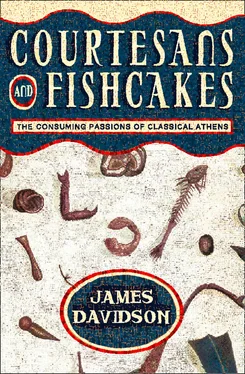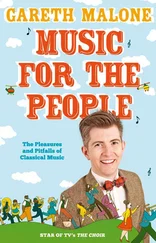Wine is not at all a conductor of ecstasy. The reason for this is clear: wine is a part of food, and food, for BS, is itself essentially convivial, therefore wine cannot derive from a solitary protocol. One drinks while one eats and one always eats with others; a narrow sociality oversees the pleasure of food … Conversation (with others) is the law, as it were, which guards culinary pleasure against all psychotic risk and keeps the gourmand within a ‘sane’ rationality: by speaking – by chatting – while eating, the person at the table confirms his ego and is protected from any subjective flight by the image-repertoire of discourse. Wine holds no privilege for BS: like food and with it, wine lightly amplifies the body (makes it ‘brilliant’) but does not mute it. It is an anti-drug. 1 Конец ознакомительного фрагмента. Текст предоставлен ООО «ЛитРес». Прочитайте эту книгу целиком, купив полную легальную версию на ЛитРес. Безопасно оплатить книгу можно банковской картой Visa, MasterCard, Maestro, со счета мобильного телефона, с платежного терминала, в салоне МТС или Связной, через PayPal, WebMoney, Яндекс.Деньги, QIWI Кошелек, бонусными картами или другим удобным Вам способом.
Alcohol has long been famous for its ability to make men voluble. In the last two hundred years in particular, occupying an optimal position on the scale of vices intermediate between what is too banal to notice and what is too terrible to speak of, it has become a division of knowledge in its own right, the stimulus for a vast array of investigation, categorization and legislation, public debate and academic study. From the pamphlets of the Temperance Movement to the self-help groups of the late twentieth century, by way of Prohibition, the perceived dangers of alcohol have put drinkers under the close watch of churches, doctors, satirists, the police and sociologists, not to speak of the most unforgiving gaze of all, the careful invigilation by drinkers of themselves, of their own habits and desire for a drink.
The residue of this fascination has provided rich pickings for modern social historians who can study without ideological fervour the drinking practices of the last century carefully catalogued by fervent teetotallers, but the tenor of this discourse has made prevalent some rather universalizing and totalizing notions, which have had the effect of pushing the study of drinking beyond the bounds of history. The broad range of intoxicating liquors known to man are viewed as manifestations of a single drug, alcohol, in various disguises. The wide experience of enjoying these beverages and the manifold forms of consuming them are viewed as manifestations of a monotonous pathology of intoxication and addiction, as ethyl first ensnares and then takes over the body.
This view which is still pervasive in modern society has been challenged recently by anthropologists. They have found it difficult to apply categories such as ‘alcoholic’ and conditions like ‘alcoholism’ to the drinking practices of other societies and have tended to group liquors under the rubric of commensality (the fellowship of the table), with food and other non-intoxicating beverages, stressing the drinker’s relationship with other drinkers rather than with his drink, emphasizing companionship , that breaking of the bread together, which is such a quaint feature of Oxford and Cambridge colleges, the Inns of Court and mass. Some have gone so far as to suggest that problem-drinking is a purely Western phenomenon that could be remedied through socialization. 2 Конец ознакомительного фрагмента. Текст предоставлен ООО «ЛитРес». Прочитайте эту книгу целиком, купив полную легальную версию на ЛитРес. Безопасно оплатить книгу можно банковской картой Visa, MasterCard, Maestro, со счета мобильного телефона, с платежного терминала, в салоне МТС или Связной, через PayPal, WebMoney, Яндекс.Деньги, QIWI Кошелек, бонусными картами или другим удобным Вам способом.
It is not difficult to see that the general outline of the debate between anthropologists and alcoholists is anticipated already by Baudelaire’s differences with Brillat-Savarin. For the poet and the alcoholist drink is an essence, a drug. What concerns them is the alien state of being within one’s own private intoxication. For the gourmand and the anthropologist drink is merely another part of food. What is important is the context in which it is consumed, the rituals of drinking, the community of drinkers. One could argue, at the risk of oversimplification, that the root of the controversy lies in a modern Western prejudice against solitary drinking, a pervasive feeling that alcohol’s effects are moderated or at least rendered negligible by the presence of other drinkers, that alcoholism reveals its true form in the period before the pubs are open and after they have closed, when the drinker is left alone with his drink. This special anxiety about opening a bottle for oneself seems misplaced. Many dangerous and persistent drinkers reach their state of intoxication in company although the violence that accompanies their inebriation may appear only at home. Nevertheless, for many it is the quiet spinster caught swigging amontillado in the morning rather than rowdy behaviour at the bar that crystallizes most clearly the image of the alcoholic.
Both the alcoholist approach and the anthropological have been employed in recent studies of wine-consumption in antiquity. While some have concentrated their efforts on looking for ancient evidence of ethyl-addiction and the problem behaviour modern sociologists associate with problem drinking, others have adopted the anthropologists’ lens, through which an apparently commonplace practice like drinking wine is transformed into something rich and strange. The familiar intoxicating liquid is a distraction. It has no importance in and of itself but only as the catalyst of peculiar cultural practices, as the sticky glue of distinctive social relationships.
The Greeks’ own vinous discourse was rich. By accident as well as by design an enormous proportion of surviving Greek painting of the sixth and early fifth centuries BCE comes from vases made for drinking, whose decorative imagery more often than not echoes their function. At about the same time a drinking literature was flourishing in the form of sympotic poetry performed at drinking-parties on the subject of women, boys, wine and pleasure. Belonging to a rather later period and much closer in appearance to branches of the modern discourse there were medical texts, although few modern doctors would repeat the advice of Athens’ most illustrious fourth-century physician, Mnesitheus, who considered heavy drinking beneficial. A number of ancient philosophers, including Aristotle and Theo-phrastus , produced treatises On Drunkenness although none of them unfortunately survives intact. Something of their style and concerns may be intimated in the series of questions and answers about the physiological aspects of intoxication, collected as book three of the Aristotelian Problemata . Wine even infiltrated history and politics. One historian in particular, Theopompus of Chios, seems to have had a keen nose for the scent of alcohol on the breath of tyrants and statesmen. A large portion of his surviving fragments, ascribed to a large number of different books of his histories of Greece and of Philip, allude to the drinking habits of princes and nations. Athenaeus even says of Theopompus that he ‘compiled a list of drink-lovers and drunks’. 3 Конец ознакомительного фрагмента. Текст предоставлен ООО «ЛитРес». Прочитайте эту книгу целиком, купив полную легальную версию на ЛитРес. Безопасно оплатить книгу можно банковской картой Visa, MasterCard, Maestro, со счета мобильного телефона, с платежного терминала, в салоне МТС или Связной, через PayPal, WebMoney, Яндекс.Деньги, QIWI Кошелек, бонусными картами или другим удобным Вам способом.
To add to this are occasional allusions in the orators to watering-holes of low repute and disapproved-of drinking practices. Demosthenes, for instance, notoriously, was teetotal. Perhaps the most important source for Athenian drinking in the classical period, however, is Attic comedy, which in all periods managed to place drunks on stage and enact the preparations for drinking-parties. This was nothing less than appropriate given that the plays were performed under the tutelage of Dionysus, the god of wine himself.
Читать дальше












